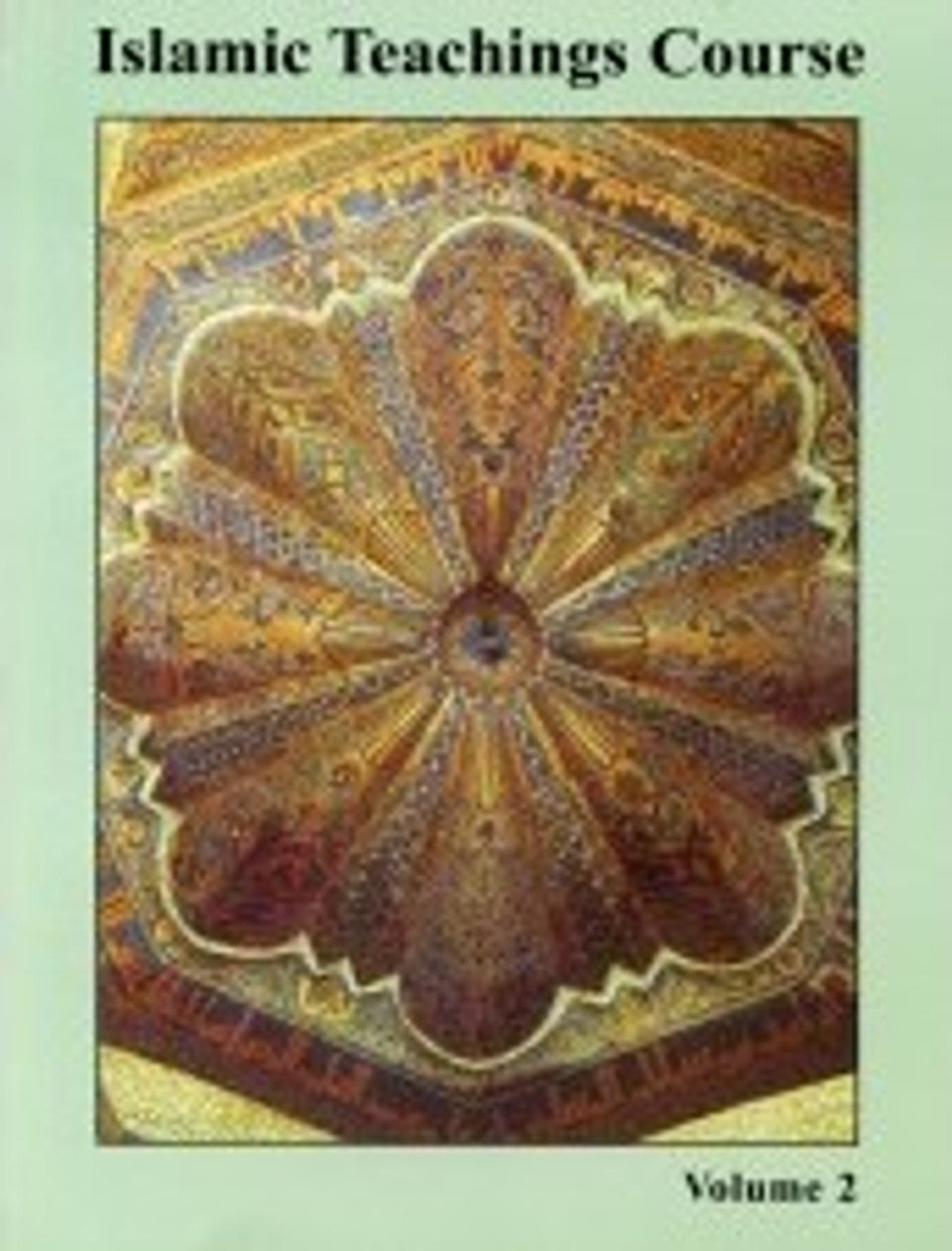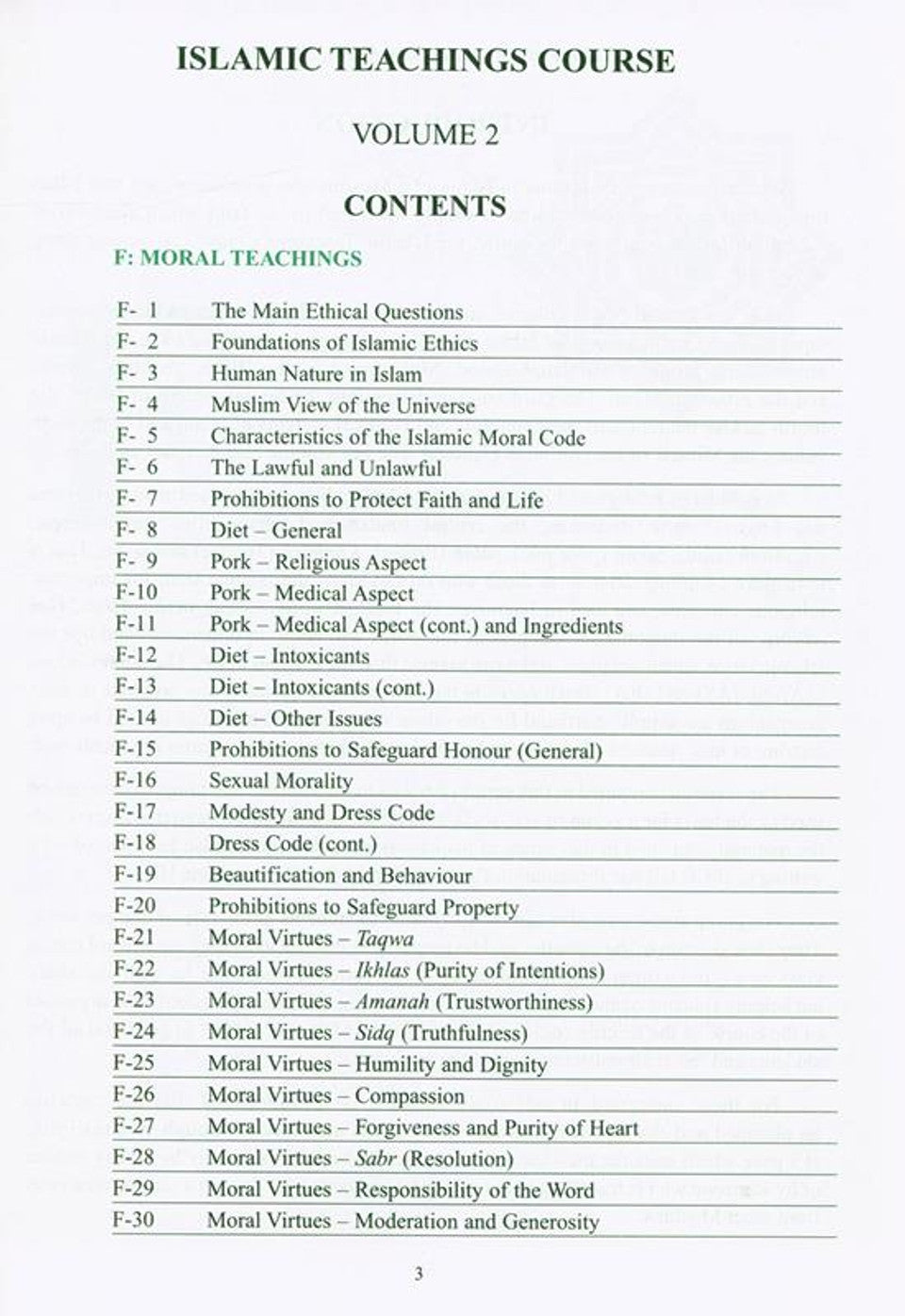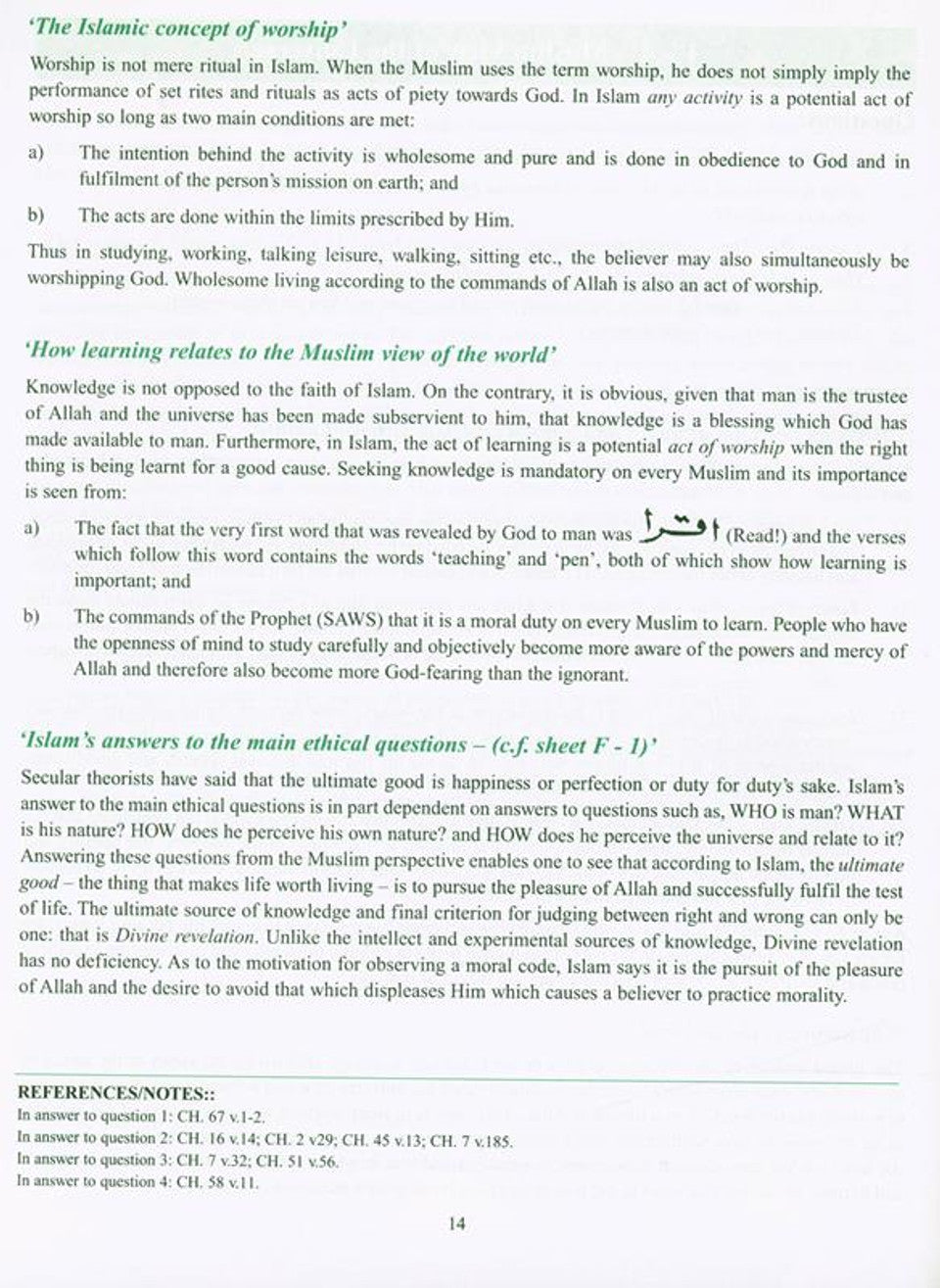100s of difficult questions about Islamic answered in an easily understood and structured manner. Based on the cassette series produced in Canada by Dr Jamal A Badawi. Authentic references used from the Qu'ran and Hadith. Ideal for individual study/group study or Islamic teachings course. Suitable for Muslims and non-Muslims.
Islamic Teachings Course Vol 2 – Authentic Islamic Knowledge
Islamic Teachings Course Vol 2 – Authentic Islamic Knowledge
Publisher:
Goodwords
Author:
Dr Jamal A.Badawi
Language:
English
Binding:
Paper back
Pages: 80
Size: 18x25cm
Couldn't load pickup availability



Collapsible content
Description of Book
Islamic Teachings Course Vol 2 – Authentic Islamic Knowledge
Islamic Teachings Course Vol 2 is a well-structured learning guide by Darussalam, covering Quran, Hadith, Fiqh, and Islamic principles. Perfect for students, teachers, and anyone eager to strengthen their Islamic knowledge.
From Author:
Publisher
Goodwords
Author
- Dr Jamal A.Badawi
Sample Pages - Content
PAGE NO:1
Islamic Teachings Course
Volume 2
PAGE NO:2
ISLAMIC TEACHINGS COURSE
VOLUME 2
CONTENTS
F: MORAL TEACHINGS
The Main Ethical Questions
Foundations of Islamic Ethics Human Nature in Islam
Muslim View of the Universe
Characteristics of the Islamic Moral Code
The Lawful and Unlawful
Prohibitions to Protect Faith and Life
Diet - General
Pork Religious Aspect
Pork - Medical Aspect
Sexual Morality
Pork - Medical Aspect (cont.) and Ingredients
Diet
Intoxicants
Diet Intoxicants (cont.)
Diet - Other Issues
Prohibitions to Safeguard Honour (General)
Modesty and Dress Code
Dress Code (cont.)
Beautification and Behaviour
Prohibitions to Safeguard Property
Moral Virtues - Taqwa
Moral Virtues - Ikhlas (Purity of Intentions) Moral Virtues - Amanah (Trustworthiness) Moral Virtues - Sidq (Truthfulness)
Moral Virtues - Humility and Dignity Moral Virtues - Compassion
Moral Virtues - Forgiveness and Purity of Heart
Moral Virtues-Sabr (Resolution)
Moral Virtues - Responsibility of the Word
Moral Virtues - Moderation and Generosity
PAGE NO:3
'The Islamic concept of worship'
Worship is not mere ritual in Islam. When the Muslim uses the term worship, he does not simply imply the performance of set rites and rituals as acts of piety towards God. In Islam any activity is a potential act of worship so long as two main conditions are met:
a)
b)
The intention behind the activity is wholesome and pure and is done in obedience to God and in fulfilment of the person's mission on earth; and
The acts are done within the limits prescribed by Him.
Thus in studying, working, talking leisure, walking, sitting etc., the believer may also simultaneously be worshipping God. Wholesome living according to the commands of Allah is also an act of worship.
'How learning relates to the Muslim view of the world'
Knowledge is not opposed to the faith of Islam. On the contrary, it is obvious, given that man is the trustee of Allah and the universe has been made subservient to him, that knowledge is a blessing which God has made available to man. Furthermore, in Islam, the act of learning is a potential act of worship when the right thing is being learnt for a good cause. Seeking knowledge is mandatory on every Muslim and its importance is seen from:
a)
b)
(Read!) and the verses
The fact that the very first word that was revealed by God to man was which follow this word contains the words 'teaching' and 'pen', both of which show how learning is important; and
The commands of the Prophet (SAWS) that it is a moral duty on every Muslim to learn. People who have the openness of mind to study carefully and objectively become more aware of the powers and mercy of Allah and therefore also become more God-fearing than the ignorant.
'Islam's answers to the main ethical questions - (c.f. sheet F-1)'
Secular theorists have said that the ultimate good is happiness or perfection or duty for duty's sake. Islam's answer to the main ethical questions is in part dependent on answers to questions such as, WHO is man? WHAT is his nature? HOW does he perceive his own nature? and HOW does he perceive the universe and relate to it? Answering these questions from the Muslim perspective enables one to see that according to Islam, the ultimate good-the thing that makes life worth living is to pursue the pleasure of Allah and successfully fulfil the test of life. The ultimate source of knowledge and final criterion for judging between right and wrong can only be one: that is Divine revelation. Unlike the intellect and experimental sources of knowledge, Divine revelation has no deficiency. As to the motivation for observing a moral code, Islam says it is the pursuit of the pleasure of Allah and the desire to avoid that which displeases Him which causes a believer to practice morality.
REFERENCES/NOTES::
In answer to question 1: CH. 67 v.1-2.
In answer to question 2: CH. 16 v.14; CH. 2 v29; CH. 45 v.13; CH. 7 v.185.
In answer to question 3: CH. 7 v.32; CH. SI v.56.
In answer to question 4: CH. 58 v.11.
Who is Dr. Jamal A.Badwai?
Dr. Jamal A. Badawi (1935–2024) was a renowned and influential Egyptian-Canadian Islamic scholar. He was widely respected for his extensive knowledge, gentle demeanor, and his ability to clearly explain Islamic teachings in English. He is best known for his seminal work, "Gender Equity in Islam," and his popular lecture series on the life of the Prophet Muhammad.



